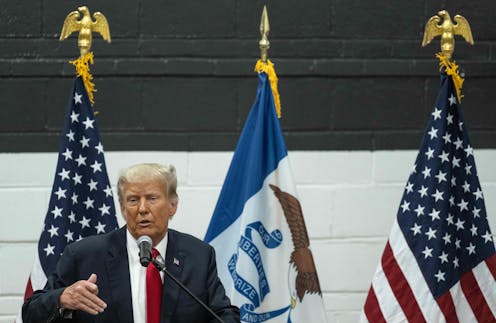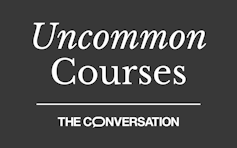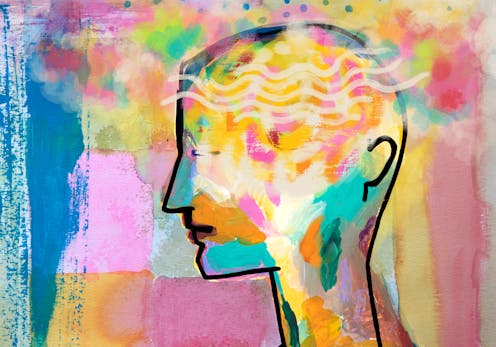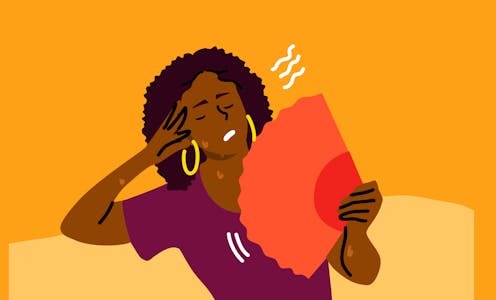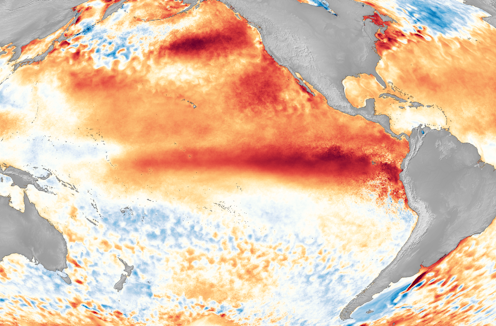Trump indictment unsealed – a criminal law scholar explains what the charges mean, and what prosecutors will now need to prove
- Written by Gabriel J. Chin, Edward L. Barrett Jr. Chair & Martin Luther King Jr. Professor of Law, University of California, Davis
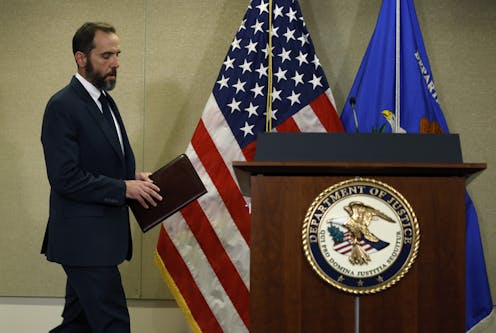 Special counsel Jack Smith prepares to talk to reporters on June 9, 2023, after the indictment of former President Donald Trump. Chip Somodevilla/Getty Images
Special counsel Jack Smith prepares to talk to reporters on June 9, 2023, after the indictment of former President Donald Trump. Chip Somodevilla/Getty ImagesFederal prosecutors on June 9, 2023, unsealed the indictment that spells out the government’s case against former President Donald J. Trump, who is accused of violating national...


